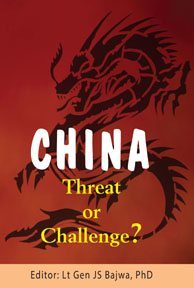Chinese President Xi Jinping is back to doing what he does best – rule with an armed iron fist in the name of development. The location and occasion for the latest diktat this time being Hong Kong, which marks the 20th anniversary of Hong Kong’s return to Mainland China and inauguration of the fifth-term government of the Hong Kong Special Administrative Region. The paradox, however, was Xi’s statement that “Development, an abiding pursuit, is crucial for Hong Kong’s survival…” While it is a known fact that development was never really the core of the issues that confront Hong Kong today.
By declaring that the Sino-British Joint Declaration on Hong Kong “…a historical document that no longer has any realistic meaning” – China, for starters has completely relegated global commentary and opinion on the political situation inside Hong Kong – since it became People’s Republic of China’s autonomous territory on the Pearl River Delta of China. Although Hong Kong houses 7.3 million people of various nationalities, the ‘autonomy’ provided by Mainland China to Hong Kong can best be described as being verisimilitudinous.
Following the First Opium War (1839–42), Hong Kong became a British colony with the perpetual cession of Hong Kong Island with a 99-year lease of the New Territories from 1898. In the early 1980s, negotiations between the UK and China resulted in the 1984 Sino-British Joint Declaration, paving way for the transfer of sovereignty of Hong Kong in 1997, when it became a special administrative region (SAR) of the Peoples Republic of China with a “high degree of autonomy” – provided for in the Basic Law which China promised in the legally binding joint declaration. Ironically, China has turned the “high degree of autonomy” to an even higher degree of political control and repression in Hong Kong by rubbishing the Sino-British Joint Declaration.
Beijing’s tools of attempting to divert political narratives specially on implementing the policy of one country, two systems in the name of ‘prominent economic and livelihood issues’ will surface/resurface sooner or later. Statements such as supporting the Hong Kong Special Administrative Region in exercising law-based governance for ‘one country, two systems’ in Hong Kong will remain hogwash until and unless China is ready honour Hong Kong with actual political autonomy of governance – ideally implying that there is a higher degree of self-governance without central control or influence from Beijing in comparison to the rest of the country. After all, the disparaging state of affairs in China’s “Tibet Autonomous Region” and “Xinjiang Autonomous Region” is widely known and referred to.
Xi Jinping has turned his focus now on the Mainland’s connectivity with Hong Kong to leverage its role in his advancing Belt and Road Initiative. With Macau lying across the delta to the west, and the southern province of Guangdong bordering the territory to the north, the connectivity between Guangdong, Hong Kong, and the Macao Greater Bay Area has taken priority for Xi administration. The Greater Bay Area, incorporates Hong Kong, Macao, and nine cities in south China’s Guangdong Province, i.e., Guangzhou, Shenzhen, Zhuhai, Dongguan, Huizhou, Zhongshan, Foshan, Zhaoqing and Jiangmen. The idea of establishing a Guangdong-Hong Kong-Macao Greater Bay Area has already been initiated in China’s 13th Five-Year Plan (2016-2020) and finds mention in the government’s work report this year.
Rather than making clichéd remarks in the name of platitudes that “Hong Kong’s people enjoy more extensive democratic rights and freedom than at any other time in its history… run [ning] their local affairs within the purview of autonomy of the HKSAR” Xi Jinping needs to put out the autonomy test to be judged independently. Rising international concerns on the infringements of civil liberties in Hong Kong, including gross intrusions on press freedom stands in sharp contrast to China’s own vision of ‘political stability’ that flows out of the barrel of the gun. The message is loud and clear; both for within the Mainland, and outside it: President Xi Jinping draws a red line in so far as handling relations internally and externally, which means that any attempt to challenge China’s power or its vision on how to see Asia, and the globe, shall be met with an iron stick. There is no room, or scope for discussion.
In the said reference, by declaring that there is no binding on “how the Chinese central government administers Hong Kong”, and that “Britain has no sovereignty, no governing power and no supervising power over Hong Kong” China once again displays its complete disregard for international norms, agreements, and rule of law. China’s embrace and obsession with revisionism wherein it chooses to understand only its own version and interpretation of sovereignty, and holds disdain for any alternative view, should remain a stark pointer and warning to the global community in times to come.





